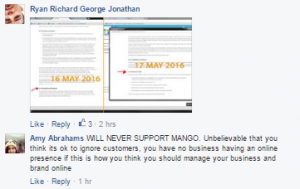Digital is driving business and is vital for any enterprise’s growth but it has created big reputational pitfalls as seen during 2016. We all know that digital allows enterprises to engage directly with their customers, provides new marketing channels and also allows customers to let you know about their problems, but and there is a BIG BUT!
The challenge is that now we want direct access to company executives and expect them to not only be online, but responsive and engaging. The pitfalls that we have seen this year from executives include expressing damaging opinions in the heat of the moment, or without context (which cannot be expressed in 140 characters).
This is why internet reputation management is a must for every business organisation. The tracking of public opinion, analysing of these, and finally interpreting meaningful information out of it can be used to build your reputation management strategy.
Social profiler training is also vital in that it prepares C-suite executives to enter the digital world and understand that everything posted on the internet lives forever – deleting a tweet doesn’t mean someone hasn’t screen grabbed it.
Internet reputation management includes the creation and implementation of social media policies as well as social media crisis communications strategies.
We at Magna Carta leverage the powerful role that reputation management and PR play in the marketing mix, through our social media profiler for C-suite executives, media training for business leaders and spokespeople and full reputation management services and crisis communication workshops. Don’t wait until you or your enterprises is in need of crisis communication, contact us today to keep your reputation intact.
For more info contact: Kalay Maistry, Business Unit Head
Digital and Strategic Advisory services


